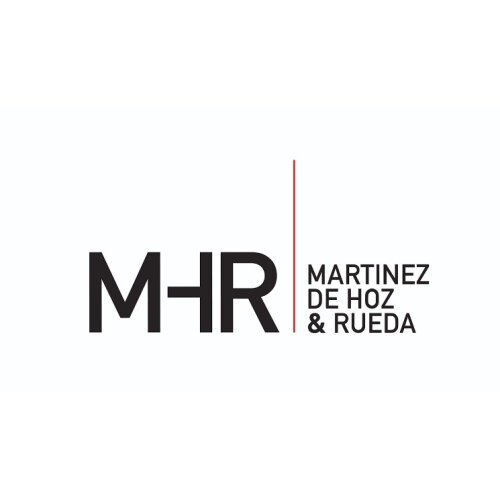Best Debt Capital Markets Lawyers in Buenos Aires
Share your needs with us, get contacted by law firms.
Free. Takes 2 min.
List of the best lawyers in Buenos Aires, Argentina
About Debt Capital Markets Law in Buenos Aires, Argentina
Debt Capital Markets (DCM) are a fundamental part of the Argentine financial landscape, allowing companies, financial institutions, and the public sector to raise funds by issuing debt securities such as bonds and notes. Buenos Aires, being Argentina's leading financial center, is home to the key regulatory and market infrastructures that facilitate these transactions. DCM activities in Buenos Aires involve a mixture of local regulations, global market practices, and evolving legal frameworks that can change in response to economic conditions.
Why You May Need a Lawyer
Involvement in Debt Capital Markets can expose individuals and businesses to significant legal complexities and risks. You may need a lawyer if you are:
- Issuing bonds or other debt securities in the public or private markets
- Structuring asset-backed securities or other structured finance products
- Buying or selling Argentine debt instruments as an investor or trader
- Seeking compliance with securities regulations and disclosure requirements
- Negotiating terms of underwriting, placement, or trustee agreements
- Resolving disputes related to bond issuance or enforcement
- Participating in debt restructuring or liability management exercises
Legal guidance ensures that you comply with all regulatory obligations, minimize risks, and protect your interests throughout the process.
Local Laws Overview
Buenos Aires is governed by Argentine national laws concerning capital markets, supplemented by local regulations. The principal legislative frameworks relevant to Debt Capital Markets include:
- Capital Markets Law No. 26,831 - This law regulates public offerings, the operation of markets, and protections for investors.
- Argentine Civil and Commercial Code - Governs the creation and execution of contracts for the issuance and trading of debt instruments.
- Comisión Nacional de Valores (CNV) - The National Securities Commission supervises and enforces securities laws and regulations.
- Central Bank of Argentina (BCRA) - Sets policies affecting foreign exchange controls, currency conversion, and cross-border remittances related to debt payments.
Issuers and participants in Debt Capital Markets must comply with rules concerning disclosure, investor protection, procedural requirements for public or private offerings, and anti-money laundering controls. Foreign investors may be subject to additional controls regarding registration, currency exchange, and remittance of funds.
Frequently Asked Questions
What are Debt Capital Markets?
Debt Capital Markets refer to the marketplace where long-term debt instruments, such as bonds or debentures, are bought and sold. These markets provide funding to governments, corporations, and other entities.
Who regulates Debt Capital Markets in Buenos Aires?
The Comisión Nacional de Valores (CNV) is the main regulatory body overseeing the issuance and trading of debt securities in Argentina, including Buenos Aires.
Can foreign entities issue debt securities in Buenos Aires?
Yes, but foreign issuers must comply with specific registration, reporting, and currency control requirements set by Argentine authorities.
What types of debt instruments are commonly issued?
Typical instruments include corporate bonds, treasury bills, provincial or municipal bonds, negotiable obligations, and asset-backed securities.
Are there currency controls affecting the DCM in Argentina?
Yes, the Central Bank imposes foreign exchange regulations that can affect the issuance, payment, and repatriation of funds related to debt instruments.
What disclosures are required for a public offering?
Issuers must provide a prospectus or offering memorandum containing detailed information about their financial condition, business, risk factors, and terms of the securities.
Is it possible to do a private placement instead of a public offering?
Yes, private placements are allowed under Argentine law and involve fewer regulatory requirements, but are limited to sophisticated or institutional investors.
What happens in case of a default on Argentine bonds?
Bondholders have rights to enforce payment, which may involve negotiation, court proceedings, or restructuring processes, subject to contract terms and local law.
How is investor protection ensured?
The CNV enforces disclosure requirements, conducts oversight of market participants, and can sanction violations or misconduct to protect investors.
Do local laws apply even if the offering targets international investors?
Yes, any offering made within Argentina or to Argentine residents must comply with local regulations, even if the securities are also marketed internationally.
Additional Resources
- Comisión Nacional de Valores (CNV) - The main regulatory authority for securities and debt instruments.
- Bolsa de Comercio de Buenos Aires - The Buenos Aires Stock Exchange where many debt securities are traded.
- Central Bank of Argentina (BCRA) - For issues concerning currency controls and remittances.
- International Bar Association and local law firms - For networking and foreign investment guidance.
- Ministry of Economy and Finance - For economic policy and regulatory updates.
Next Steps
If you need legal assistance relating to Debt Capital Markets in Buenos Aires, consider these steps:
- Define your goals and specific concerns regarding debt issuance, investment, or compliance.
- Consult a lawyer or law firm specialized in capital markets and financial transactions in Argentina.
- Prepare relevant documentation, such as business plans, financial statements, and existing contracts, to facilitate efficient legal review.
- Stay informed about regulatory changes from the CNV and the Central Bank.
- Ask legal professionals about the most appropriate legal structure, necessary disclosures, and risk management strategies for your specific situation.
Getting professional legal advice can help you navigate the complexities of Debt Capital Markets and safeguard your interests in the Argentine market.
Lawzana helps you find the best lawyers and law firms in Buenos Aires through a curated and pre-screened list of qualified legal professionals. Our platform offers rankings and detailed profiles of attorneys and law firms, allowing you to compare based on practice areas, including Debt Capital Markets, experience, and client feedback.
Each profile includes a description of the firm's areas of practice, client reviews, team members and partners, year of establishment, spoken languages, office locations, contact information, social media presence, and any published articles or resources. Most firms on our platform speak English and are experienced in both local and international legal matters.
Get a quote from top-rated law firms in Buenos Aires, Argentina — quickly, securely, and without unnecessary hassle.
Disclaimer:
The information provided on this page is for general informational purposes only and does not constitute legal advice. While we strive to ensure the accuracy and relevance of the content, legal information may change over time, and interpretations of the law can vary. You should always consult with a qualified legal professional for advice specific to your situation.
We disclaim all liability for actions taken or not taken based on the content of this page. If you believe any information is incorrect or outdated, please contact us, and we will review and update it where appropriate.
















